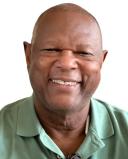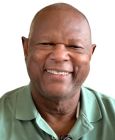Growth Mindset
Develop a “Way of Being” to Access Your Masterpiece Within
It's the framework for practices that help us move from surviving to thriving.
Posted March 4, 2024 Reviewed by Davia Sills
Key points
- Individuals can choose where they direct their energy and attention in ways that align with their intentions.
- It becomes easier to embrace one's values and character strengths in ways that allow one to thrive.
- For a meaningful shift into growth mindset, there has to be a willingness to get out of one's comfort zone.

In my latest book, Unlocked, I write about the ability each of us has to uncover our true potential for growth, success, and ultimately greatness by accessing what I call the “masterpiece within.” That happens through a journey from self-awareness to self-regulation, which over time can lead to self- efficacy or mastery. Those three pillars are the foundation of the lessons learned in my journey from addict to “performance whisperer” and the core of what I’ve been teaching others for nearly 40 years.
But the connective tissue for this life-long process that moves us from surviving and reactivity to wellness and thriving is to develop what I call a “way of being.” It’s the center from which you’re operating and the framework for incorporating various tools and practices that help you unlock each and every day.
Frames of Orientation and Devotion
This concept of developing an overall sense of identity has been referenced by others in the past, including psychoanalyst and social philosopher Erich Fromm, who identified something he labeled “Frames of Orientation” as one of our five fundamental human needs.
“[It's] both a frame of reference and an object of devotion around which someone can organize and direct their actions,” Fromm wrote. “This frame of reference can provide a coherent map of the world, providing people with an understanding of the world and their place in it.” 1
Our Ability to Choose
Fromm points to our ability to choose where we direct our energy and attention in ways that align with our intentions. Existential psychologist Rollo May echoed that sentiment when he wrote that the “ultimate freedom” is freedom of will that allows us to choose our attitudes even when we face challenges or difficulties. And it is only to the extent that we are able to live out our destiny that we experience the ultimate sense of achievement.
That ability to make wise choices is a mental muscle we can build through practices like Lojong mind training, the Tibetan tradition of mental and emotional cultivation. Or by cultivating habits that elicit positive emotions like joy, play, or curiosity, as Barbara Fredrickson outlined in her Broaden-and-Build Theory. 2
From Temporary States to Permanent Traits
As we begin to develop a way of being, we move the needle towards a new normal, where temporary or fleeting states like happiness, creativity, and productivity lead to permanent traits like resilience and contentment or peace by embracing our values and character strengths in ways that allow us to thrive or flourish.
These concepts, introduced to the world at large by pioneers like Martin Seligman, often considered the father of “positive psychology,” and Mihaly Csikszentmihalyi are crucial components of my work. The latter explored optimal experiences he labeled “flow states” or being “in the zone”—those moments when we feel totally immersed in an activity, oblivious to time or our environment.
The accomplished people that I’ve worked with, whether world-class athletes or corporate CEOs or anyone who’s overcome great hurdles, seem to have the ability to access this state in a way that allows them to perform at a consistently high level.
The Shift to a Growth Mindset
In Mindset: The New Psychology of Success, Carol Dweck reinforces the idea that a new way of being is possible by embracing what she calls a “growth mindset”:
“In this mindset, the hand you’re dealt is just the starting point for development. This growth mindset is based on the belief that your basic qualities are things you can cultivate through your efforts.
“Why hide deficiencies instead of overcoming them? Why look for friends or partners who will just shore up your self-esteem instead of ones who will also challenge you to grow? And why seek out the tried and true instead of experiences that will stretch you? The passion for stretching yourself and sticking to it, even (or especially) when it’s not going well, is the hallmark of the growth mindset. This is the mindset that allows people to thrive during some of the most challenging times in their lives."
For this mindset shift to occur, there has to be the willingness to get out of your comfort zone, increase the complexity of what you want to achieve, and go beyond what you feel is possible. As I like to say, you have to “get comfortable being uncomfortable”! This is part of becoming unlocked. And what’s in the way becomes the way!
You Don’t Know What You Don’t Know
The journey towards a “way of being” isn’t a linear or direct path, but it does take us through the Four Stages of Competence or Learning.3 You go from unconscious incompetence to conscious incompetence to conscious competence to unconscious competence, psychological states involved in mastering any skill.
Our goal is a “way of being” where we move from thinking and acting on our intentions consciously to a state where things seem to happen automatically. The arrow seems to shoot itself!
The great poet Maya Angelou referenced this state when she wrote:
“Our divine potential [is] most effective when it starts to become automatic, when it becomes unconscious or subconscious. When this happens, people do exactly what they know to do—not what they think they know, not what they should know, not what other people say they know. As the Chinese say: to know and not to do is, in fact, not to know.”
What Will You Be Devoted To?
But it all begins with the idea of choice. What if we choose a devotion, in Fromm’s terms, to qualities like developing peace within ourselves? Or becoming adept at deliberately responding vs. reacting involuntarily? Or pausing to listen to the still, small voice that’s easily drowned out?
I believe that by pursuing those aims, we unlock the true masterpiece within each of us. We remove the extraneous, the layering of our conditioning and defenses, and the ways that we have been untrue to who we really are until we find what is authentic within us—an authenticity that is always there, waiting to be revealed.
References
1 Fromm, E., & Anderson, L. A. (2017). The Sane Society. Routledge.
2 Fredrickson, B. L. (1998). What good are positive emotions? Review of General Psychology, 2(3), 300-319.
3 De Phillips, Frank Anthony; Berliner, William M.; Cribbin, James J. (1960). "Meaning of learning and knowledge"




